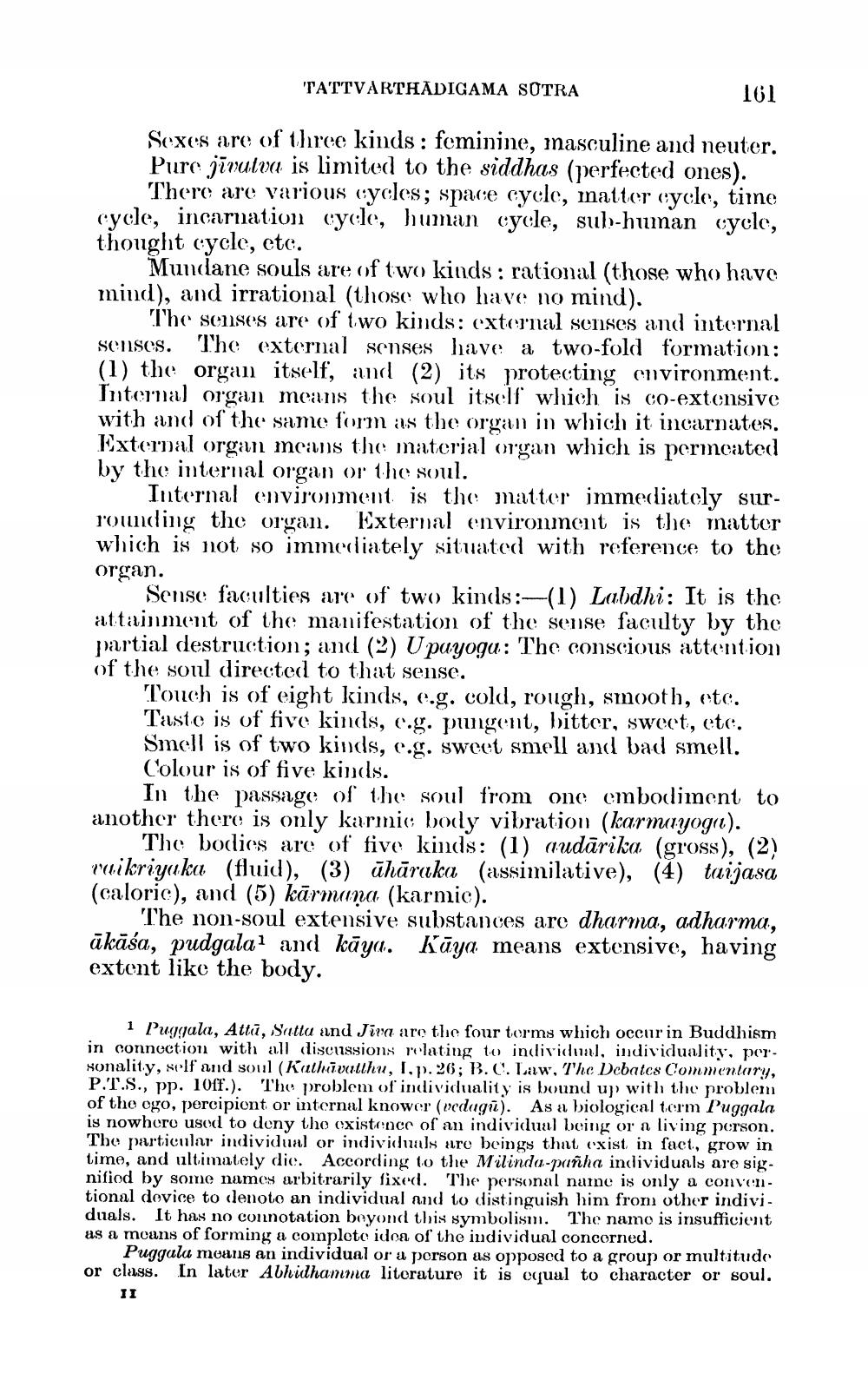________________
TATTVARTHÄDIGAMA SOTRA
161
Sexes are of three kinds : feminine, masculine and neuter. Pure jīvulva is limited to the siddhas (perfected ones).
There are various cycles; space cycle, matter cycle, time cycle, incarnation cycle, human cycle, sub-hunan cycle, thought cycle, etc.
Mundane souls are of two kinds: rational (those who have mind), and irrational (those who have no mind).
The senses are of two kinds: external senses and internal senses. The external senses have a two-fold formation: (1) the organ itself, and (2) its protecting environment. Internal organ means the soul itself which is co-extensive with and of the same form as the organ in which it incarnates. External organ means the material organ which is permeated by the internal organ or the soul.
Internal environment is the matter immediately surrounding the organ. External environment is the matter which is not so immediately situated with reference to the organ.
Sense faculties are of two kinds:-(1) Labdhi: It is the attainment of the manifestation of the sense faculty by the partial destruction; and (2) Upayogu: The conscious attention of the soul directed to that sense.
Touch is of eight kinds, e.g. cold, rough, smooth, etc. Taste is of five kinds, e.g. pungent, bitter, sweet, etc. Smell is of two kinds, e.g. sweet smell and bad smell. Colour is of five kinds.
In the passage of the soul from one embodiment to another there is only karmic body vibration (karmuryogi).
The bodies are of five kinds: (1) audārika (gross), (2) vaikriyaka (fluid), (3) ūhāraka (assimilative), (4) taijasa (caloric), and (5) kārmana (karmic).
The non-soul extensive substances are dharma, adharma, ākāśa, pudgalal and kāya. Kāya means extensive, having extent like the body.
!:P. 26; B.
problem
percipiont o
1 Puggala, Attu, Sattu and Jiva are the four terms which occur in Buddhism in connection with all discussions relating to individual, individuality, personality, self and soul (Kathiivallhu, I, p. 26; B.C. Law, Thc Debates Commentary, P.T.S., pp. 10ff.). The problem of individuality is bound up with the problem of the ego, percipient or internal knower (vedagū). As a biological term Puggala is nowhere used to deny the existence of an individual being or a living person. The particular individual or individuals are beings that exist in fact, grow in time, and ultimately die. According to the Milinda-pañha individuals are sig. nifiod by some namey arbitrarily fixed. The personal name is only a conven - tional device to denoto an individual and to distinguish him from other indivi. duals. It has no connotation beyond this symbolism. The name is insufficient as a means of forming a complete idea of the individual concerned.
Puggala means an individual or a person as opposed to a group or multitude or class. In later Abhidhamma literature it is equal to character or soul.
II




